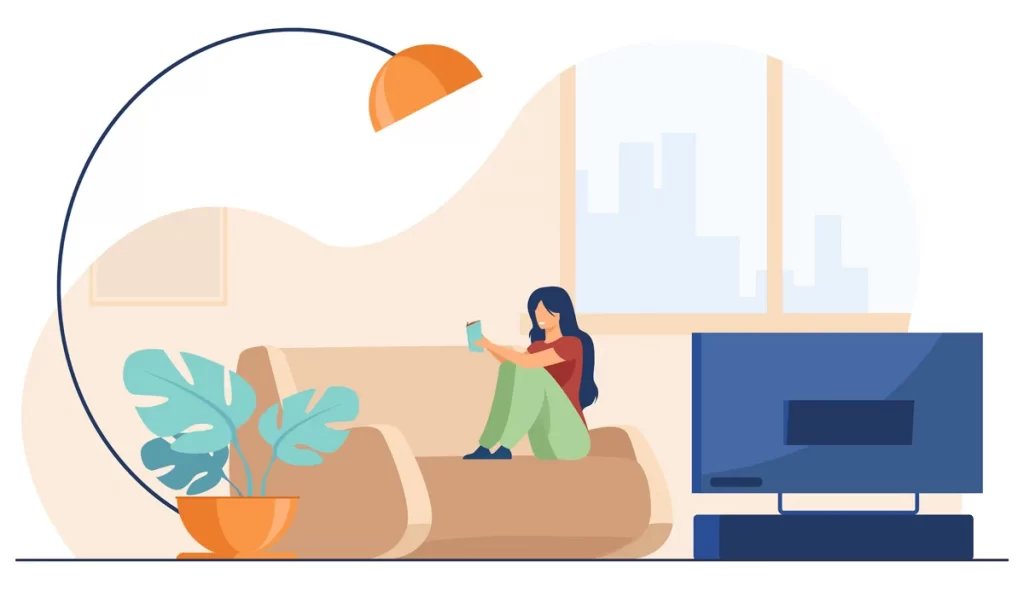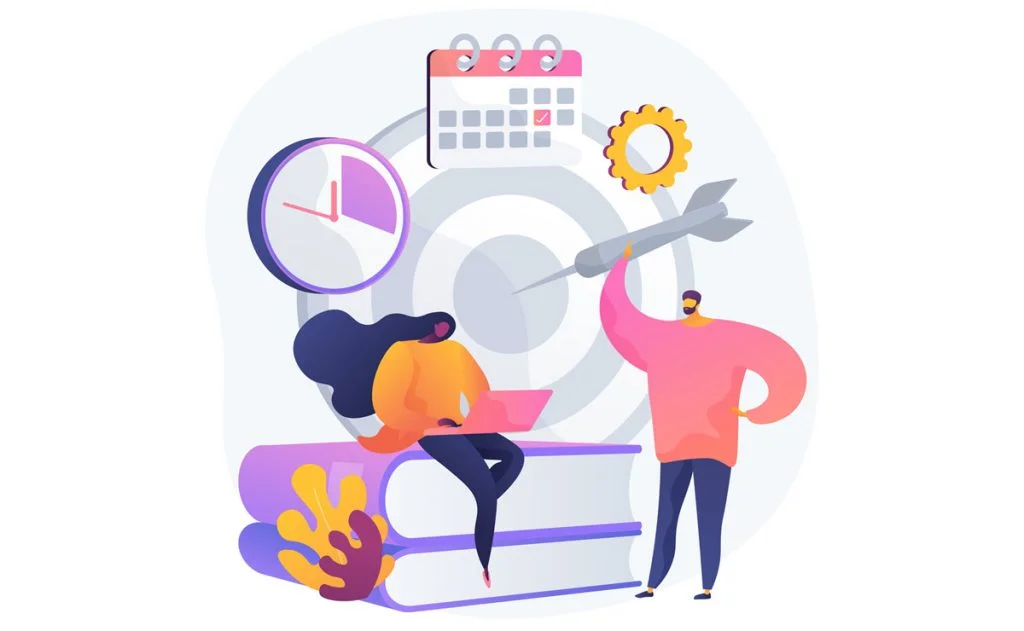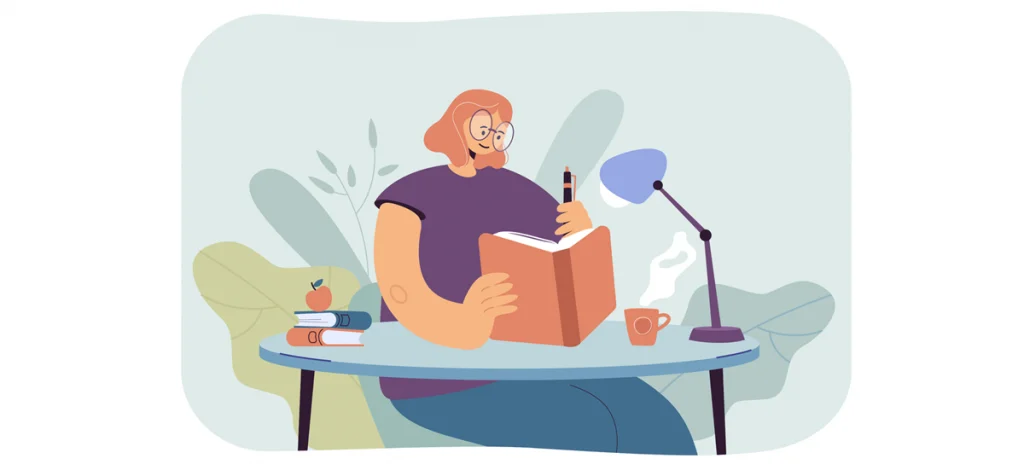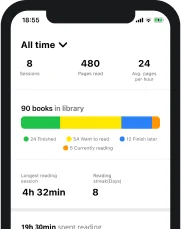The “reading vs watching TV” battle has been going on ever since the invention of television programs. While the enthusiasm of being entertained without putting in any effort of their own has won over the hearts of millions, if not billions of people over the years, the debate on the benefits of books vs TV seems to have been settled long ago. Despite that, the general trend doesn’t seem to favor reading.
Why is that and how can you avoid wasting your time watching TV and reaping the benefits of being a reader instead? Keep reading and all your questions will be answered.
Is reading better than watching TV?
The short answer? Yes. Reading is a whole lot better than watching TV in more ways than you can imagine. Even from an early age, the use of screens brings massive disadvantages when compared to time spent reading. Not only because reading is an incredibly useful learning tool, while the TV has a mainly entertainment purpose, but also because of the effect both have on our brains.
Reading has a positive effect on our mental health, while watching TV has the exact opposite effect. Reading can reduce stress, lower our blood pressure, our heart rate and muscle tension.
On top of the knowledge boost reading provides us with, it also has a healing effect on our mental state. Especially if we approach reading with mindfulness, there is a lot for us to gain if we spend more time reading and less time watching TV. Reading allows us to live less stressful, wiser and more empathetic lives.
Using Basmo, a reading tracking app for the modern reader, can help you gain a much more mindful approach to this incredibly beneficial activity. Use Basmo to take notes, keep a reading journal, schedule your reading sessions and even to create, save and share your favorite quotes. Basmo is a great way to enhance any of the countless benefits of reading.
Why is reading better than watching TV?
Now that we have established that reading is a much healthier, useful and rewarding activity than watching TV, let’s have a look at a couple of important aspects that differentiate the two and some of the most relevant benefits of reading vs watching TV.
Reading benefits
First, let’s explore some of the most important benefits that those of us who have the habit of reading can enjoy.
- Reading improves general knowledge: there is no better way of acquiring information on pretty much any subject than through reading.
- Reading makes us better people: by helping us relax, by making us wiser and better informed, by improving our ability to empathize with others and by teaching us countless life lessons, reading makes us better people in countless aspects.
- Reading helps us live longer and healthier lives: the benefits of reading books go well beyond our mental health. Reading can lower your blood pressure, slow your heart rate, delay the onset of age related cognitive diseases like Alzheimer’s or dementia and can even extend our life expectancy.
- Reading is like cardio for your brain: even though anatomically they have almost nothing in common, your brain and your muscles share a couple of similarities to a certain extent. More precisely, your brain will function a lot better the more you exercise it, just like your muscles. Reading is a great exercise for your brain and people who read constantly not only have better learning performance, they also have a much healthier brain, which allows them to have a young and sharp mind even in old age.
If you are interested, we have an extensive article prepared for you where you can learn more about the benefits of reading!
List of disadvantages of watching TV
While the TV vs books debate has a clear winner in everyone’s eyes, it is still worth having a quick look at the drawbacks of choosing to watch TV instead of reading.
Just to be clear, we know that completely swearing off television is not really an option these days. What’s important for you is to manage to find a balance between the time you spend watching TV and the time you spend reading, while being aware of the effects of both.
Just like in a chocolate vs fruit debate, everyone knows which one is better, but very few people manage to completely stick to the healthy choice and no nutritionist will ever expect their patients to completely stop eating chocolate. As long as you make the right choice more times than you make the wrong one, you will be a lot better off.
Here is what you should know about watching TV the next time your hand is on the remote.
The TV is a time-wasting machine
Did you ever find yourself sitting in front of your TV planning to watch it for a little while only realize after a while that 2 hours went by? We’ve all been through that.
The thing about television programs is that they rely on keeping you engaged for as long as possible. Commercial breaks always happen when things get interesting in the show you’re watching because they know you won’t turn off the TV in the middle of a suspenseful movie for example.
Decades have been spent on developing strategies for engaging watchers for extended periods of time and that’s because the longer you watch, the more the television earns. This can be extremely toxic for you as you are very likely to waste a great portion of your free time watching pointless TV programs.
TV exposes you to violence, disturbing news and sexually explicit content.
Even if you’re an adult and you may not realize it, constantly allowing yourself to get exposed to toxic content will have an effect on your mental state. Depression, anxiety and other similar conditions are partly rooted in the type of content we consume.
Also, if there is a child in your household as well, they will unwillingly be exposed to certain images that may not be appropriate for their age. Even if you’re just watching the news, certain things will not be a great idea for your child to see or hear.
TV makes you lazy
And not just because most of your TV watching will happen with you sitting or laying on a couch (the term couch potato is no coincidence, as studies have found a relation between watching countless hours of TV and obesity), but also because it doesn’t stimulate you in any way. It leaves nothing for you to imagine, there’s very little thought involved in watching any type of TV program.
TV will teach your brain that entertainment is an effortless activity, where you are overstimulated by flashing imagery, enticing sound effects, violence and nudity.
TV is not your friend
For some viewers, watching television becomes a full time activity, which slowly replaces their relationships with friends and family. Not only that, but one study has found that for certain people who are too invested in TV shows, losing a loved one and losing a fictitious character from a show generate quite similar emotions. On top of this warped emotional behavior, TV also changes viewer’s vision about certain things: body shape, a predisposition to consumerism, and enforces racial and sexual stereotypes that are far from the reality we live in.
As you can see, there are a lot of drawbacks to watching TV. Despite that, we don’t necessarily encourage you to completely stop. You just need to be aware of the consequences of over-exposing yourself to TV content and take the necessary measures in order to make better use of your free time.
How do Books and Television Affect Your Brain?
Well, to put it very shortly, they affect your brain in completely different ways. The brain activity while reading vs watching TV has been studied in the past. The conclusions were quite blunt: especially for children, TV had a toxic effect on arousal and aggression levels and delayed mental development compared to the levels of children who read.
While reading increases brain connectivity and strengthens the neuronal connections of readers at any age and level, TV has the exact opposite effect.
Here’s a couple of other ways your mental state and your brain are affected differently by books and TV.
Reading has a calming effect, while TV overstimulates you
As I mentioned before, reading is a great way to relax after a hard day of work. You can escape your day to day life and allow yourself to be engulfed in the adventures presented by the author in a safe and healthy way, while your blood pressure drops, your stress level is reduced and you feed your mind and soul.
TV often has the exact opposite effect. Watching the news will leave you worried. Watching an action movie will probably leave you wishing you hadn’t seen that much violence or nudity. Comedies are unrealistic, romantic shows seed stereotypes and false expectations. All this while blue light invades your eyes and nerves, flashing images set your brain on high alert and the advertisements push you one step closer to toxic consumerism.
Books are great sources of information, while the TV is often used to misinform
There’s not much you can think of that hasn’t already been studied and explored in a book. Books are amazing sources of knowledge and information, regardless of the area you are interested in.
Some TV programs like documentaries can be pretty useful too. Make sure to always double check the information you get from TV though. In the past years, misinformation has been a key element for the informational war we are all going through. Never get your news for example from the same TV station every day.
Books provide quality content, while TV programs don’t stimulate you
The great thing about books is that they don’t provide you with any imagery whatsoever for the most part, leaving your mind to fill in the blanks. You can imagine what characters look like according to the author’s description, visualize the action, the places they see. Your mind is constantly at work to fill in all these blanks while reading and that is a very good thing for you and your brain.
TV programs leave no blanks to be filled. You have all the information right there on the screen, you hear the sounds, the music, the voices. You see the action, sometimes even more of it than you would like, leaving you wishing you hadn’t seen all that blood. Your brain does nothing else than to process all this information that is blasted towards it. Your imagination is at a complete halt and stays that way until you stop watching TV. And as we already know, most people spend at least a couple of hours every day watching TV.
Reading vs TV before bed
If you’re ever wondering whether you should read or watch TV before bed, there’s no way around it: you should choose the book. Reading relaxes you, helps you fall asleep quicker and sleep better.
TV on the other hand will shine blue light at your eyes and into your brain, which will agitate you and will delay the secretion of melatonin in your brain. In other words, you will sleep less and worse.
How to watch less TV? Create a reading habit
We have to admit, watching TV does come with a couple of benefits books cannot provide, such as presenting valuable real-time information. It can also be a family bonding experience, you could have an interesting, visual learning experience through documentaries and it can be a rather satisfying pass-time activity.
We also know that the temptation to watch mindless TV shows is sometimes too much to handle and you will give in. That’s ok. But know that if you want to start watching less TV and start reading more, there are ways you can go about doing it. And it’s actually a bit easier than you might expect, thanks to Basmo.
Basmo is a reading tracking app which was designed with the modern reader in mind. We know how hard it is to fight off distractions and temptations. And that is why our app is fully packed with features that come to your aid.
First and foremost, if you want to read more, you need to set yourself a realistic goal. Basmo can help: it allows you to set daily or yearly reading goals for how much time you spend reading every day or how many books you go through in a year.
Once you know your goal, it’s time to set your motivation straight. To do that, find the one reading benefit that speaks to you the most. Do you want to be smarter? More empathetic? More relaxed. Take your pick and set that as your ultimate motivation to stick to your goals.
Then, it’s time to set your schedule. Yes, you will need a reading schedule and Basmo is there to help as well. Just in a couple of taps, the app allows you to personalize your schedule as you see fit, you choose how many days per week you want to read in, what time of day and the app saves your choices and even sets alarms for you so you get a reminder before any upcoming reading sessions.
But that’s not all. Basmo will also allow you to:
- Take notes while reading
- Keep a reading journal
- Create personalized reading lists
- Save quotes
Conclusion
While the reading vs watching TV debate has a clear winner, keeping up with the promises you make yourself is going to be tough. Basmo will be there to support you all along the way.
Give Your Reading Experience
An Extra Boost With Basmo
Track the books you read, monitor the time you spend reading and keep notes on your reading habits and how it makes you feel. You can set yourself targets for the time you spend reading and you can get notified whenever you’re behind on your reading time.
Woman reading vector created by pch.vector – www.freepik.com







